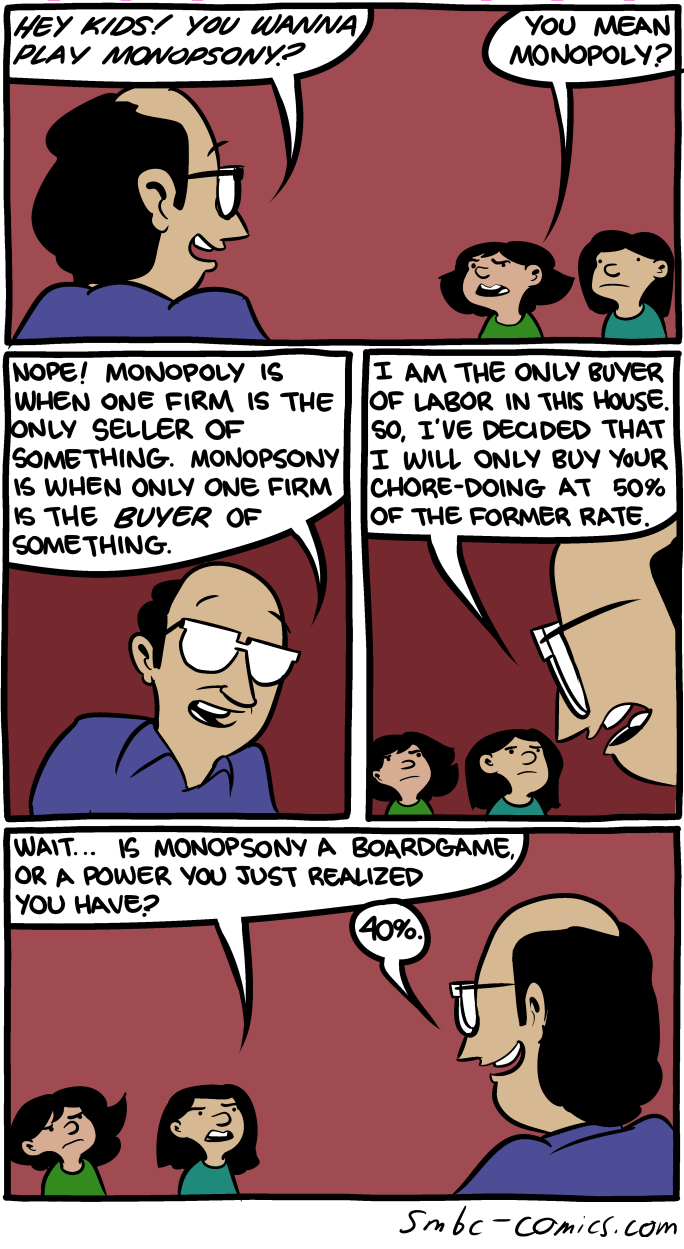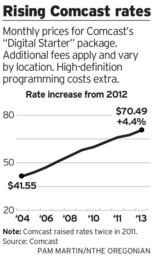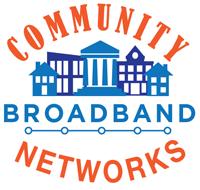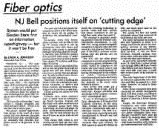
OHMYGAW, we just locked in our audiobook reader. Hopefully announcing next week.
Thanks once again for all of your support. It means a lot to me.

Patrick McDermott"That’s not God’s will, that’s you catching a fatal case of being a weird idiot."
“Born in Zion” is a book by a fundamentalist woman, Carol Balizet, who insists that pregnant women should refuse all medical intervention during the birth of their child. Unsurprisingly, this has directly caused the deaths of several pregnant women, as well as their babies.
The logic doesn’t exactly work, either. If God really wants you to die, he would make that clear by having you die in a hospital, under the treatment and supervision of a team of doctors and nurses. Anyone can die by bleeding out in a kiddie pool in their living room, if they refuse to call an ambulance. That’s not God’s will, that’s you catching a fatal case of being a weird idiot.

“My dad had a medical procedure the day of my prom and was out of his mind on pain killers when my mom insisted that I pose with him before prom. I like to think he would’ve put down the hose for the pic if he’d been in his right mind, but in all honesty it could’ve gone either way. He has no memory of taking this photo.”
(submitted by Emily)
The post Prom Dad appeared first on AwkwardFamilyPhotos.com.

“This was prom 1993 in Rhode Island. I was a freshman and my boyfriend was a senior. For some reason, we didn’t quite fit in at the dance… “
(submitted by Cedar)
“This was prom 1993 in Rhode Island. I was a freshman and my boyfriend was a senior. For some reason, we didn’t quite fit in at the dance… “
(submitted by Cedar)

Patrick McDermottUM, I've worked with this guy. He was/is a tech writer at a company I did a co-op for. He is exactly the mix of Dwight Shrute and Milton (office space) you'd expect.
Let “Street Sword” be your introduction to the world of Phil Elmore, a man with the singular obsession of “self-defense.” The “Look Inside” preview of the text should give you a taste of the Street Sword, after which you can move on to Flashlight Fighting, a guide to the world of whupping someone’s ass with a flashlight.
Whoops, I meant “defending yourself.”
“Jebediah has a secret [...] that will send his people into space.” So begins the promotional copy of Amish Vampires In Space, and goes downhill from there. The intrepid can read some of it in the “Look Inside” link, though I don’t recommend it.
Lots of people are angry about FCC Chairman Tom Wheeler's Internet "fast lane" proposal that would let Internet service providers charge Web services for priority access to consumers. But one Web hosting service called NeoCities isn't just writing letters to the FCC. Instead, the company found the FCC's internal IP address range and throttled all connections to 28.8Kbps speeds.
"Since the FCC seems to have no problem with this idea, I've (through correspondence) gotten access to the FCC's internal IP block, and throttled all connections from the FCC to 28.8kbps modem speeds on the Neocities.org front site, and I'm not removing it until the FCC pays us for the bandwidth they've been wasting instead of doing their jobs protecting us from the 'keep America's internet slow and expensive forever' lobby," NeoCities creator Kyle Drake wrote yesterday.
NeoCities offers free and paid Web hosting. As Drake noted, FCC access to NeoCities is being throttled on the home page only, and not on websites created by NeoCities users.
Read 3 remaining paragraphs | Comments

Patrick McDermott"A delusion or fantasy about using the end of society to acquire the power and resources they lack here in the real world."
If it’s been a while since you dipped your toe into the apocalyptic fringe, why not have a look today? “The Prepper: Part One”, “Oh Sh!t… The Awakening”, “Grid Down: Perceptions of Reality”, “Society’s Collapse: A Long Road Ahead”, and “Equipping Modern Patriots” are some of the best-selling books in the genre of Prepper Fiction, a masturbatory fantasy by and for people who keep food and guns in their basement. The message, of course, is that it’s actually good and smart to hoard bullets and bags of rice, not a delusion or fantasy about using the end of society to acquire the power and resources they lack here in the real world.
In case you’re not tempted yet to hit the “look inside” link to read these (which you can do on the product page) – each and every one has a monologue by at least one character about how Obama caused the fictional apocalypse, via power failure, cyber-attack, or nuclear blast.

JPMorgan Chase reports average cable rates reached $88.67 in 2013. (Image: The Oregonian)
Cable TV rates are too low and need to be hiked to boost revenue and offset rising programming costs, even if rate increases further alienate cable subscribers, according to a new report from JPMorgan Chase.
The Wall Street bank concluded customers have few options, noting that after providers raised prices around 5% last year, they lost only 0.1% of subscribers.
“Cable operators are better off raising video prices than eating higher content costs,” said Philip Cusick, a JPMorgan analyst, in the report. “Our analysis indicates that cable companies are better off raising prices and catching customers with broadband if cord cutting becomes widespread, (rather) than eating the programming increase.”
The bank recommends imposing (or raising) broadcast TV and sports programming surcharges as well as general rate hikes on basic cable service.
JPMorgan notes that increased broadband pricing and cable modem rental fees paid off for the industry during the fourth quarter of 2013, when earnings topped estimates. By doing the same for cable television packages, providers can continue to boost revenue with little risk customers will find a suitable competitor that isn’t also increasing prices.
Even if customers get rid of cable television, a practice known as cord-cutting, cable operators can still keep customers by providing broadband service. Some of the lost revenue can be recovered from the services customers have not canceled.
Cusick says the industry is being challenged by a handful of content companies that increasingly dominate the cable package, among them Walt Disney, Time Warner (Entertainment), CBS, and FOX.
“With the majority of content controlled by only six or seven programmers, aggregate prices for content are rising around 10% annually and forecasts in many media models continue that rise for years,” Cusick said.
Other coverage you may enjoy:

Phillip “Spending $6k per cable customer is obviously a much better deal than paying half that to build a fiber to the home network” Dampier
Math was never my strong subject, but even I can calculate the groupthink of American cable and telephone companies and their friends on Wall Street just doesn’t add up.
This week, we learned that cable companies like Bright House Networks, Suddenlink, and Charter Communications are already lining up for a chance to acquire three million cable customers Comcast intends to sell if it wins approval of its merger with Time Warner Cable. Wall Street has already predicted Comcast will fetch as much as $18 billion for those customers and pegged the value of each at approximately $6,000.
But for less than half that price any company could build a brand new fiber to the home system capable of delivering 1,000Mbps broadband and state-of-the-art phone and television service and start banking profits long before paying off the debt from buying an inferior coaxial cable system. Yet we are told time and time again that the economics of fiber to the home service simply don’t make any sense and deploying the technology is a waste of money.
Let’s review:
Google Fiber was called a boondoggle by many of its competitors. The folks at Bernstein Research, routinely friendly to the cable business model, seemed appalled at the economics of Google’s fiber project in Kansas City. Bernstein’s Carlos Kirjner and Ram Parameswaran said Google would throw $84 million into the first phase of its fiber network, connecting 149,000 homes at a cost between $500-674 per home. The Wall Street analyst firm warned investors of the costs Google would incur reaching 20 million customers nationwide — $11 billion.
“We remain skeptical that Google will find a scalable and economically feasible model to extend its build out to a large portion of the U.S., as costs would be substantial, regulatory and competitive barriers material, and in the end the effort would have limited impact on the global trajectory of the business,” Bernstein wrote to its investor clients.
 So Google spending $11 billion to reach 20 million new homes is business malpractice while spending $18 billion for three million Time Warner Cable customers is confirmation of the cable industry’s robust health and valuation?
So Google spending $11 billion to reach 20 million new homes is business malpractice while spending $18 billion for three million Time Warner Cable customers is confirmation of the cable industry’s robust health and valuation?
Bernstein’s firm never thought highly of Verizon FiOS either.
“If I were an auto dealer and I wanted to give people a Maserati for the price of a Volkswagen, I’d have some seriously happy customers,” Craig Moffett from Bernstein said back in 2008. “My problem would be whether I could earn a decent return doing it.”
Back then, Moffett estimated the average cost to Verizon per FiOS home passed was $3,897, a figure based on wiring up every neighborhood, but not getting every homeowner to buy the service. Costs for fiber have dropped dramatically since 2008. Dave Burstein from DSL Prime reported by the summer of 2012 Verizon told shareholders costs fell below $700/home passed and headed to $600. The total cost of running fiber, installing it in a customer’s home and providing equipment meant Verizon had to spend about $1,500 per customer when all was said and done.
Moffett concluded Verizon was throwing money away spending that much on improving service. He wasn’t impressed by AT&T U-verse either, which only ran fiber into the neighborhood, not to each home. Moffett predicted AT&T was spending $2,200 per home on U-verse back in 2008, although those costs have dropped dramatically as well.

Moffett
Moffett’s solution for both Verizon and AT&T? Do nothing to upgrade, because the price wasn’t worth the amount of revenue returns either company could expect in the short-term.
It was a much different story if Comcast wanted to spend $45 billion to acquire Time Warner Cable however, a deal Moffett called “transformational.”
“What we’re talking about is an industry that is becoming more capital intensive,” Todd Mitchell, an analyst at Brean Capital LLC in New York told Bloomberg News. “What happens to mature, capital-intensive companies — they consolidate. So, yes, I think the cable industry is ripe for consolidation.”
Other investors agreed.
“This is definitely a bet on a positive future for high-speed access, cable and other services in an economic recovery,” said Bill Smead, chief investment officer at Smead Capital Management, whose fund owns Comcast shares.
 But Forbes’ Peter Cohan called Google’s much less investment into fiber broadband a colossal waste of money.
But Forbes’ Peter Cohan called Google’s much less investment into fiber broadband a colossal waste of money.
“Larry Page should nip this bad idea in the bud,” Cohan wrote.
Cohan warned investors should throw water on the enthusiasm for fiber before serious money got spent.
“FTTH authority, Neal Lachman, wrote in SeekingAlpha, that it would cost as much as $500 billion and could take a decade to connect all the houses and commercial buildings in the U.S. to fiber,” Cohan added.
Cohan was concerned Google’s initial investment would take much too long to be recovered, which apparently is not an issue for buyers willing to spend $18 billion for three million disaffected Time Warner Cable customers desperately seeking alternatives.

An investment for the future, not short term profits.
Municipal broadband providers have often chosen to deploy fiber to the home service because the technology offers plenty of capacity, ongoing maintenance costs are low and the networks can be upgraded at little cost indefinitely. But such broadband efforts, especially when they are owned by local government, represent a threat for cable and phone companies relying on a business model that sells less for more.
The American Legislative Exchange Council (ALEC), funded by Comcast, Time Warner, AT&T, Verizon, and other large telecom companies is at the forefront of helping friendly state legislators ban community fiber networks. Their excuse is that the fiber networks cost too much and, inexplicably, can reduce competition.
“A growing number of municipalities are [...] building their own networks and offering broadband services to their citizens,” ALEC writes on its website. “ALEC disagrees with their answer due to the negative impacts it has on free markets and limited government. In addition, such projects could erode consumer choice by making markets less attractive to competition because of the government’s expanded role as a service provider.”
The Fiber-to-the-Home Council obviously disagrees.
“Believe it or not, there are already more than a thousand telecom network operators and service providers across North America that have upgraded to fiber to the home,” says the Council. “The vast majority of these are local incumbent telephone companies that are looking to transform themselves from voice and DSL providers into 21st century broadband companies that can deliver ultra high-speed Internet and robust video services, as well as be able to deliver other high-bandwidth digital applications and services to homes and businesses in the years ahead.”

Stephenson
In fact, a good many of those efforts are undertaken by member-owned co-ops and municipally owned providers that answer to local residents, not to shareholders looking for quick returns.
The only time large companies like AT&T move towards fiber to the home service is when a competitor threatens to do it themselves. That is precisely what happened in Austin. The day Google announced it was launching fiber service in Austin, AT&T suddenly announced its intention to do the same.
“In Austin we’re deploying fiber very aggressively,” said AT&T CEO Randall Stephenson. “The cost dynamics of deploying fiber have dramatically changed. The interfaces at the homes, the wiring requirements, how you get a wiring drop to a pole, and the way you splice it has totally changed the cost dynamics of deploying fiber.”
Prior to that announcement, AT&T justified its decision not to deploy fiber all the way to the home by saying it was unnecessary and too costly. With Google headed to town, that talking point is no longer operative.
Other coverage you may enjoy:
Patrick McDermottGives it to us raw and wriggling.


Bait and switch broadband
Since 1991, Verizon telephone customers in New Jersey have paid at least $15 billion in surcharges for a promised high-speed broadband network that would reach every home in the state by 2010. But now critics charge Verizon diverted much of that money to shareholder dividend payouts and building infrastructure for its highly profitable wireless network, leaving almost half the state with slow speed DSL or no broadband at all.
In the early 1990s, Verizon’s predecessor — Bell Atlantic — launched “Opportunity New Jersey,” a plan promising the state it would have the first 100% fiber telecommunications network in the country. In return, the company enjoyed more than two decades of generous tax breaks and collected various surcharges from customers to finance network construction. But a review of Verizon’s promises vs. reality suggest the company has reneged on the deal it signed with the state back when Bill Clinton was beginning his first term as president.
Verizon promised at least 75 percent of New Jersey would have a fiber service by 1996 offering 384 television channels and 45/45Mbps broadband service for $40 a month. The network would be open to competitors and be deployed without regard to income or its potential customer base.
The state suspected trouble as far back as 1997, when the Division of the Ratepayer Advocate with the New Jersey Board of Regulatory Commissioners blasted the company’s progress five years into the project:
Bell Atlantic-New Jersey (BA-NJ) has over-earned, underspent and inequitably deployed advanced telecommunications technology to business customers, while largely neglecting schools and libraries, low-income and residential ratepayers and consumers in Urban Enterprise Zones as well as urban and rural areas.

By 2006, New Jersey was being introduced to FiOS, which some believed was part of Verizon’s commitment to the state. But a decade after Verizon’s target dates, customers were still waiting for FiOS video service, the maximum broadband speeds offered at that point were 30/5Mbps and the cost of the package ranged from $180-200 a month. Most of Verizon’s FiOS deployments were in the northern half of the state, leaving southern New Jersey with few, if any service improvements.
Despite Verizon’s repeated failures to meet its target dates, that same year New Jersey made life even easier for the phone company by passing a statewide video franchise law allowing Verizon to bypass negotiating with each town and city regarding its video services and instead run FiOS TV as it pleases anywhere in the state. The company argued a statewide video franchise would allow for more rapid deployment of Verizon’s fiber network. In reality, the company was falling further and further behind. By 2013, when Verizon sought renewal of its statewide franchise, Verizon only offered FiOS TV to 352 of the 526 communities hoping for service. At least 174 communities still waiting for FiOS are likely never going to get the fiber service, despite paying Verizon’s surcharges for more than 20 years. Verizon suspended its FiOS expansion project more than two years ago.
Bait and Switch Broadband

From promises of a cutting edge fiber future to good-enough DSL.
Despite early commitments of providing New Jersey with advanced fiber broadband speeds unheard of elsewhere in the country in the 1990s, Verizon changed its tune when it became clear the company wanted to prioritize investment in its more lucrative wireless network. Instead of a commitment of 45/45Mbps, providing basic DSL broadband at any speed was now seen as adequate. Verizon spokesman Lee Gierczynski told both Newsweek and the Inquirer the company never promised a statewide deployment of FiOS.
“Nobody knew what FiOS was 20 years ago,” Gierczynski said. “It wasn’t until 2004 when FiOS came on the scene.”
Forget about that commitment for 45/45Mbps speed as well.
“It didn’t say a minimum of 45mbps,” Gierczynski said, “it just says ‘up to’.”
That means DSL service will be a part of southern New Jersey for the near future. Customers unimpressed with the 5Mbps DSL service they get from Verizon can always pay substantially more for access to Verizon Wireless’ usage capped LTE 4G network that Gierczynski believes can be used to download movies.
In effect, ratepayers that wrote checks to pay artificially higher phone bills to help subsidize a promised 100% fiber optic future have instead funneled working capital to Verizon Wireless’ network expansion and helped enrich shareholders with generous dividend payouts.
Opportunity New Jersey Verizon: Christie Administration Proposes Letting Verizon Off the Hook Permanently

Gov. Christie
Most victims of costly bait and switch schemes get angry and demand justice. In New Jersey, the Christie Administration believes Verizon is the victim of unreasonable expectations and has proposed a sweetheart deal to both let the company off the hook and keep the surcharges it collected from New Jersey ratepayers for the last 21 years.
While the rest of the country clamors for better broadband, Governor Christie’s State Commission, his Attorney General’s Office and the state Consumer Rate Counsel believe that basic DSL is good enough, and making life difficult for Verizon by insisting it live up to its part of a mutual agreement just isn’t very nice.
All eyes were on incoming president of the Board of Public Utilities Dianne Solomon, wife of close Christie associate Lee Solomon. The BPU has direct authority over Verizon’s compliance with its promises to the state. But Dianne’s only apparent experience is as an official with the United States Tennis Association. Critics immediately pounced on the odd nomination, accusing the governor of using the BPU as a lucrative parking lot for political patronage. Three of the four current commissioners are all politically connected and their experience navigating telecommunications law is questionable.
Instead of demanding that Verizon be held to its commitment to the state, government officials are bending over backwards to let Verizon walk away from its promises forever.
A stipulation proposal would allow the company to shred its commitment to upgrade New Jersey with fiber optics. Instead, Verizon gets permission to discontinue service if you have any other option for service — including cable or wireless. Not only would this stipulation eliminate any hope bypassed communities have to eventually get Verizon FiOS, it would also let Verizon scrap its rural landline network and kill DSL, forcing customers to its lucrative wireless broadband product instead.

Solomon
The agreement also eliminates any commitment Verizon had to deliver fiber-fast speeds. Instead, Verizon will be considered in good standing if it matches the slowest speed on offer from Verizon DSL.
“Broadband is defined as delivering any technology including Verizon’s 4G wireless, fiber, copper or cable, data transmission service at speeds no less than the minimum speed of Verizon New Jersey’s Digital Subscriber line (DSL) that is provided by Verizon New Jersey today.”
New Jersey customers can file comments about the proposed agreement until March 24, 2014 with the Board of Public Utilities.
We have found a good sample letter you should edit to make your own. You can e-mail the secretary directly and/or send your message to the general e-mail address: board.secretary@bpu.state.nj.us (be sure to include “Verizon New Jersey, Docket No. TO12020155″ on the Subject line):
New Jersey Board of Public Utilities
Kristi Izzo, Secretary
44 South Clinton Avenue, 9th Floor
P.O. Box 350 Trenton, NJ 08625-0350
Email: kristi.izzo@bpu.state.nj.us
Re: In the Matter of Verizon New Jersey, Inc. Docket# TO 12020155
Dear Secretary Izzo:
I want to alert you to an urgent matter pending before the New Jersey Board of Public Utilities. Pursuant to a 1993 law called Opportunity New Jersey, Verizon NJ was obligated to upgrade New Jersey’s “copper wire” network by 2010. To fund the Opportunity New Jersey expansion, Verizon NJ was permitted to collect excess charges from their customers and received lucrative tax breaks from the State. These charges and tax breaks began in the 1990s and are still being collected today.
Verizon failed to meet its timeframe requirements under the Opportunity New Jersey agreement to New Jersey residents. As a result of Verizon’s failures, on March 12, 2012, the New Jersey Board of Public Utilities initiated a legal action against Verizon NJ. The Board and Verizon NJ have now entered into a proposed settlement agreement which I believe is inadequate and not in the best interests of myself and other New Jersey residents who have paid for this service that was not fully delivered.
I oppose the Board’s proposed settlement agreement and demand that The Board of Public Utilities hold Verizon to the original Opportunity New Jersey agreement which requires Verizon to expand broadband services to every customer in the State. The proposed settlement has the potential of costing myself and other residents even more money than I have already paid for the last 21 years. The Board of Public Utilities should not allow Verizon to flagrantly disregard the stipulations which are the framework for the charges and tax breaks that Verizon has enjoyed for 21 years.
I am asking the Board of Public Utilities to be my advocate and investigate where our dollars were spent and to require Verizon to give me what I was originally promised under Opportunity New Jersey agreement of 1993.
Sincerely,
[Your Name, Address, Phone Number]
Other coverage you may enjoy:
 The iGrow, a light-helmet with attached headphones, claims to make your hair grow back. As you might imagine, LED light has not been proven to reverse or prevent baldness. The iGrow retails for several hundred dollars.
The iGrow, a light-helmet with attached headphones, claims to make your hair grow back. As you might imagine, LED light has not been proven to reverse or prevent baldness. The iGrow retails for several hundred dollars.
Patrick McDermottGood Luck!
 CBS head Les Moonves is ready to take the CBS television network off broadcast television and move it to a pay television platform where he can protect the network’s revenue should the Aereo video streaming service be deemed legal.
CBS head Les Moonves is ready to take the CBS television network off broadcast television and move it to a pay television platform where he can protect the network’s revenue should the Aereo video streaming service be deemed legal.
Aereo’s fate is likely to be decided by the U.S. Supreme Court in April, and if it should prevail providing local television signals over streaming video without paying the network for the programming, CBS is prepared to walk away from over 50 years of free over the air television.
“If Aereo should win, which we don’t think will happen, we can go ‘over the top’ with CBS,” Moonves said on Tuesday at an investor conference. “If the government wants to give them permission to steal our signal, then we will come up with some other way to get them our content and still get paid for it.”
“Over the top” refers to streaming programming over the Internet.
Cable, satellite and telco TV customers would be unaffected because CBS already receives compensation from those pay television venues. But those watching over the air would lose CBS unless they maintained an Internet-based subscription to the network.
Moonves said he will play hardball against any “systems out there that try to hurt us.”
Other coverage you may enjoy: